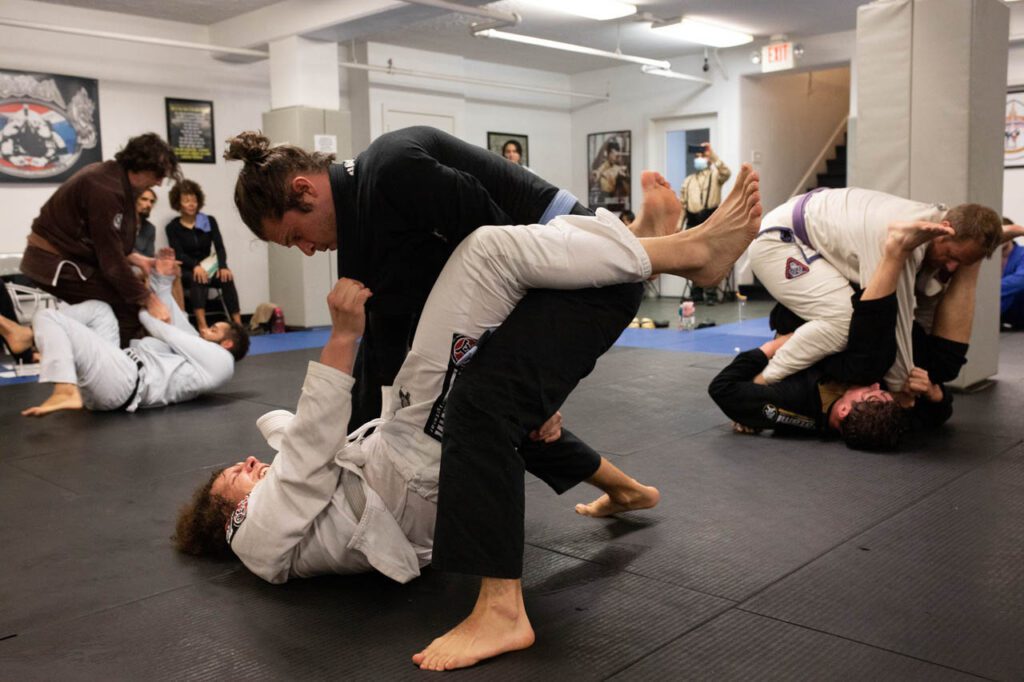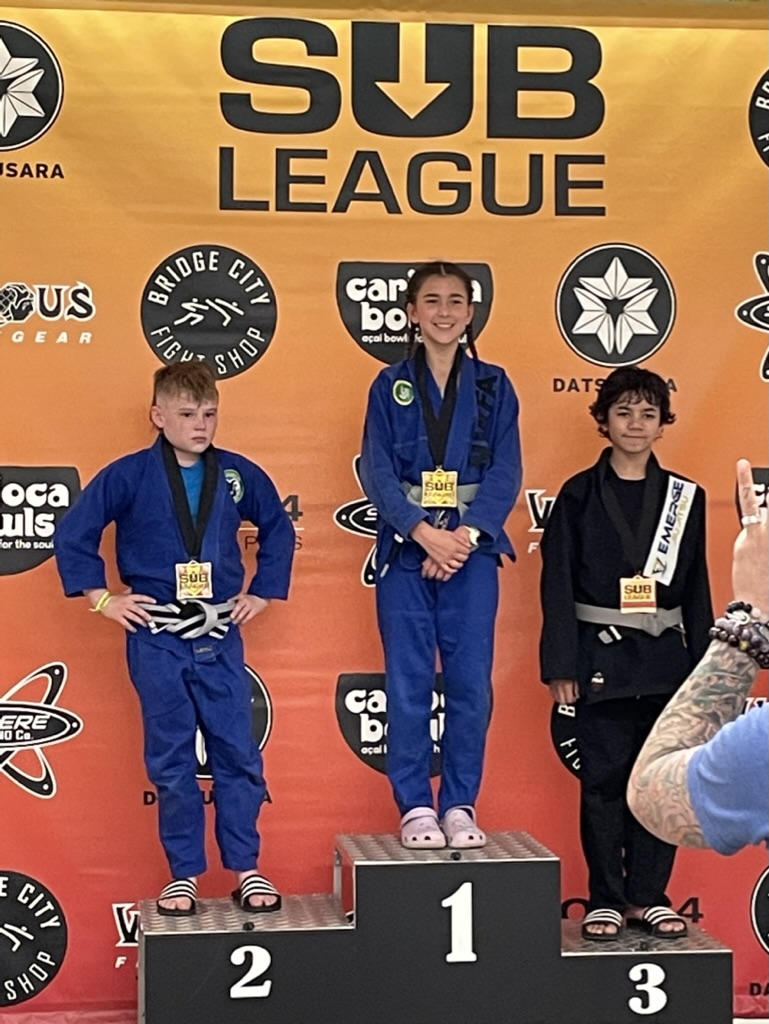Embracing The Responsibility Ethic in Brazilian Jiu-Jitsu: A Path to Personal Growth and Community Building

In the world of Brazilian Jiu-Jitsu (BJJ), there exists a unique blend of physical prowess, mental fortitude, and ethical principles that guide practitioners towards excellence both on and off the mats. The core principles ties into Adam Kreek’s Responsibility Ethic, a framework that emphasizes personal ownership, resilience, and teamwork. In this blog, we’ll delve into how embracing these principles can not only enhance one’s journey in BJJ but also contribute to the growth of a supportive and empowering community within the sport.
1. Personal Ownership:
BJJ is a journey that demands a high degree of personal responsibility. Unlike team sports where individual performance can be overshadowed by the collective effort of the group, success in BJJ is primarily determined by one’s own dedication, discipline, and commitment to improvement. Every practitioner must take ownership of their progress on the mats, acknowledging that their growth is ultimately in their own hands.
In the context of personal ownership, the belt system in BJJ serves as a tangible representation of one’s journey and progress within the art. Advancing from one belt to another is not merely a matter of attendance or time served; it requires a deep sense of personal accountability and mastery of techniques. Each belt earned symbolizes the culmination of countless hours of training, self-reflection, and overcoming challenges.
For example, consider a practitioner striving to earn their blue belt, the first significant milestone in the BJJ journey. They must not only demonstrate technical proficiency but also exhibit traits such as resilience in the face of adversity, humility in victory, and a willingness to learn from setbacks. By taking ownership of their journey, they understand that progress in BJJ is not linear but requires consistent effort and dedication.
2. Resilience:
 Resilience is a cornerstone of both the Responsibility Ethic and Brazilian Jiu-Jitsu. On the mats, practitioners are constantly tested both physically and mentally. They face opponents of varying skill levels, endure physical discomfort during training, and navigate the inevitable setbacks that come with learning a complex martial art.
Resilience is a cornerstone of both the Responsibility Ethic and Brazilian Jiu-Jitsu. On the mats, practitioners are constantly tested both physically and mentally. They face opponents of varying skill levels, endure physical discomfort during training, and navigate the inevitable setbacks that come with learning a complex martial art.
In BJJ, resilience manifests in the ability to persevere through challenging situations, whether it’s escaping from a dominant position, recovering from a submission attempt, or enduring fatigue during a grueling sparring session. Moreover, resilience extends beyond the physical realm, encompassing the mental toughness to push through self-doubt, frustration, and fear of failure.Consider the journey of a white belt facing their first competition. Despite feeling nervous and uncertain, they summon the resilience to step onto the mats and face their opponent with courage and determination. Win or lose, they emerge from the experience stronger and more resilient, equipped with valuable lessons that will shape their journey in BJJ.
Off the mats, the resilience cultivated through BJJ translates into the ability to navigate life’s challenges with a sense of calm and confidence. Whether it’s facing adversity in the workplace, overcoming personal obstacles, or persevering through difficult times, BJJ practitioners approach life with a resilient mindset honed through their experiences on the mats.
3. Team Collaboration:
While BJJ is often perceived as an individual pursuit, it thrives on the foundation of teamwork and collaboration. Training partners push each other to excel, coaches provide guidance and mentorship, and the camaraderie within the gym creates a supportive environment for growth and development.
In the world of BJJ, success is not solely defined by individual achievements but by the collective progress of the team. Every practitioner plays a role in supporting and uplifting their training partners, whether it’s offering encouragement during tough training sessions, sharing knowledge and techniques, or celebrating each other’s victories, both big and small.

Example of this is preparing students for a major competition. Practitioners come together to train intensively, drilling techniques, strategizing game plans, and offering feedback to help each other improve. Despite the individual nature of competition, the success of each practitioner is intertwined with the collective effort of the team.
Off the mats, the spirit of teamwork and collaboration cultivated in BJJ extends into the broader community. Practitioners support each other not only in training but also in various aspects of life, whether it’s offering career advice, lending a listening ear during tough times, or rallying together to support charitable causes.
Embracing the Responsibility Ethic in Brazilian Jiu-Jitsu goes beyond mastering techniques or winning competitions; it’s about fostering personal growth, resilience, and community building. By taking ownership of their journey, cultivating resilience, and embracing teamwork, practitioners not only become better martial artists but also contribute to the creation of a supportive and empowering community within the sport. As we continue our journey on the mats, let us embody these principles both in our practice and in our interactions with others, striving to uphold the values that make BJJ not just a martial art but a way of life.



